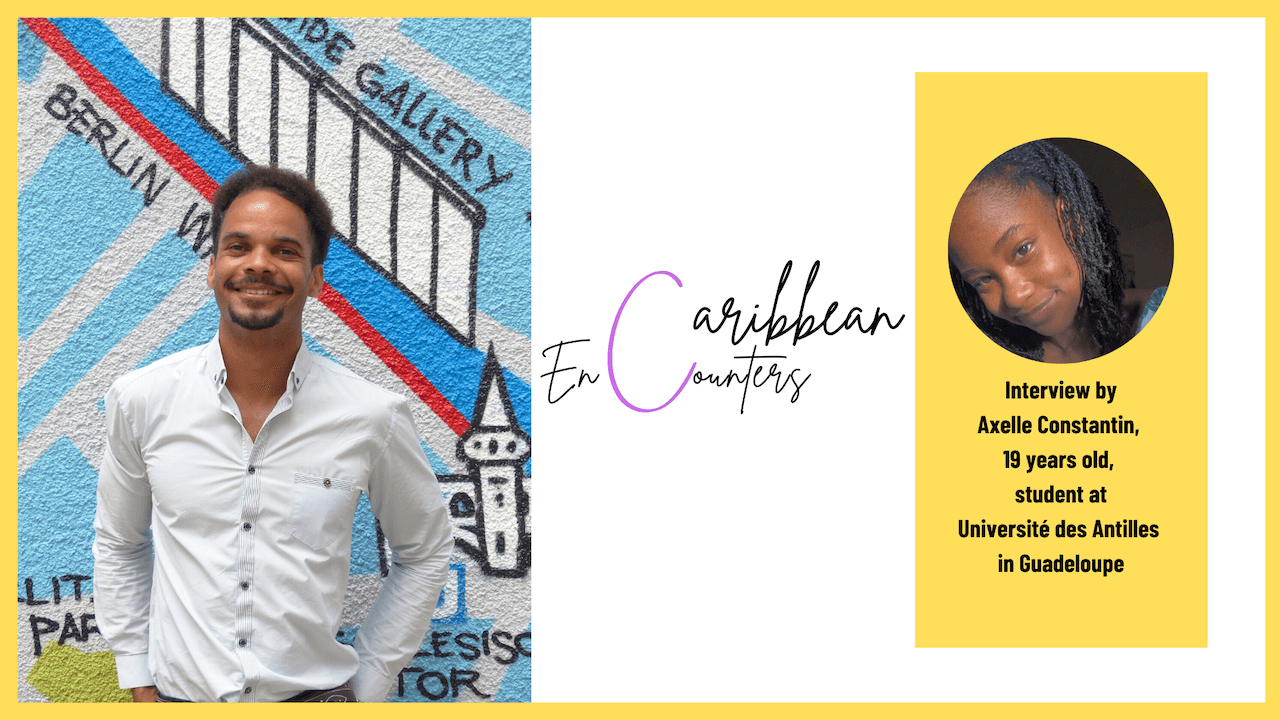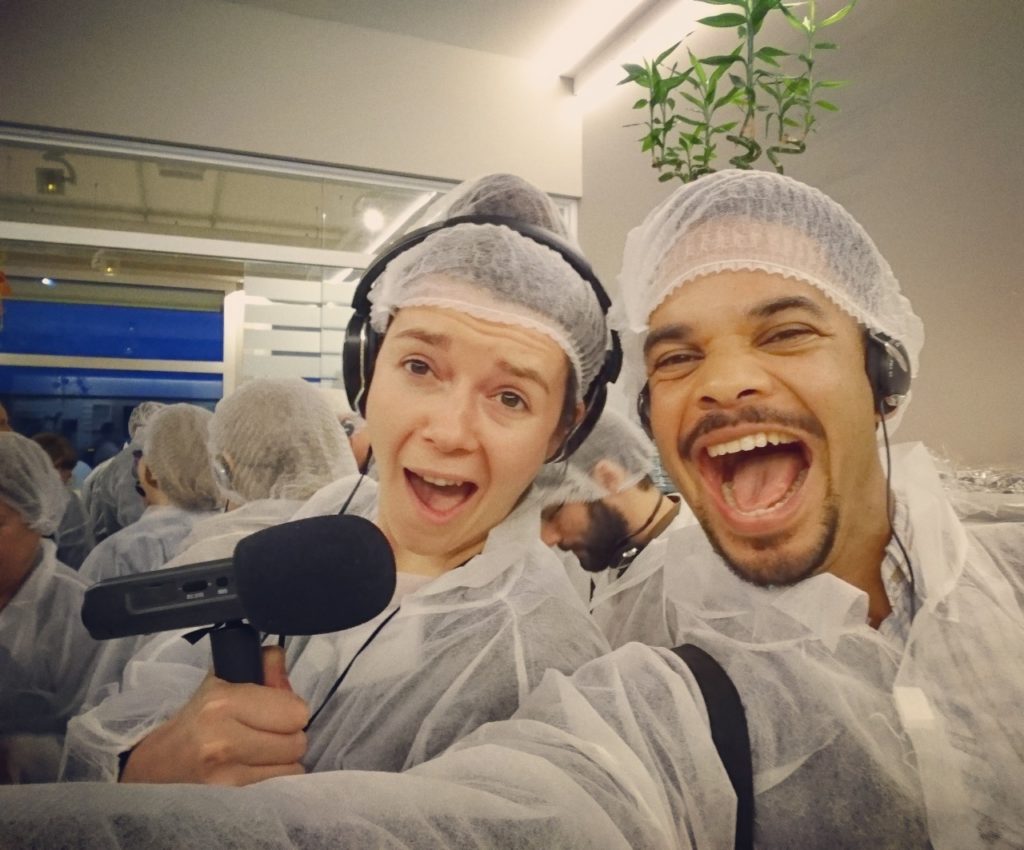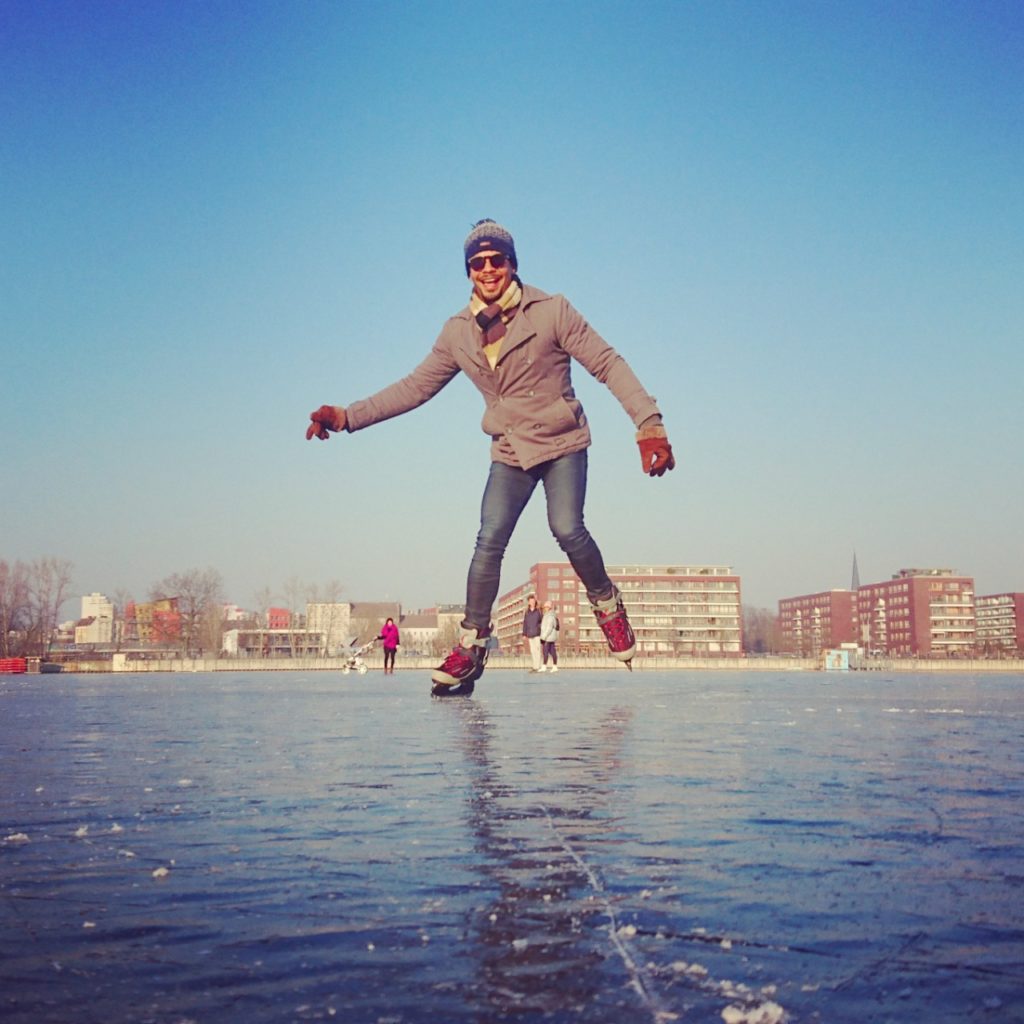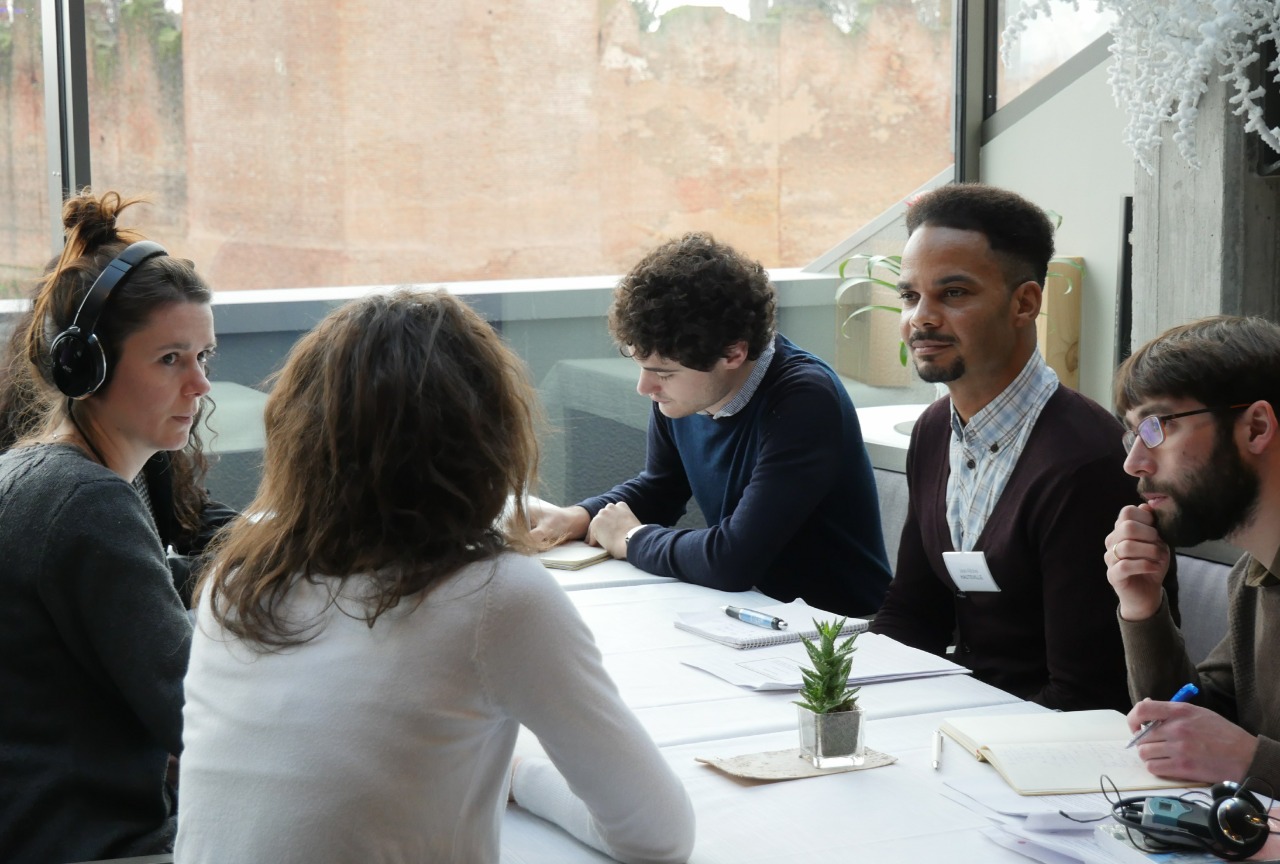Jean-Michel Hauteville was the second person I had the opportunity to interview. And it came with some struggle! Connection problems and poor audio quality during the tests even led us to postpone the interview. But with persistence, (and a little help from the phone connection), we were able to communicate without too much hindrance.
Like Doris, my first « Caribbean Encounter », Jean-Michel Hauteville is from Martinique. He is a freelance journalist and has been working in Germany for several years now. In the past, he worked as a financial controller for a multinational company, until he retrained as a journalist. He now mostly works for French and German media. He also used to volunteer for a food bank based in Germany.
F as in foreigner / « foreign country »
From what Jean-Michel shared with me, to live in Germany for a Martiniquan, is to feel the obvious difference between the two cultures. Initially, he decided to move there for work. Now that he calls that country home, he has had to adapt to the customs of the country. “For example, when you agree to meet someone, you have to plan things a long time ahead, so for me it was strange in the beginning. Besides, it is a European country, most of the people here are white so, being from the Caribbean I look different, the music and food are different too.”
Having to adapt was a source of inspiration for his blog when he moved to Germany. The blog deals with the difficulties and the pleasant surprises… in a nutshell : accommodation in a new country.
Last year, Jean-Michel worked as an analyst for NewsGuard. Although he only held this position for a few months, it was indirectly related to his job as a journalist. It involved assessing French news sites such as: Lesechos.fr, La-Croix.com and many others.
« My job was to help internet users to figure out if the website that they are reading are reliable, and if the news they are reading are trustworthy. But at some point my mission was over, and I also had less time for it, because my activities as a journalist were more intense. » Consequently, Jean-Michel started writing articles for the French media again.
A year and a half ago, he was still enjoying the comfort and especially the certainty of a fixed salary from his former job with an English-language media outlet he started working as a freelancer, taking on different jobs or assignments for example. As an independent journalist, he is not employed by a media organisation. So he does not have a contract or a full-time job.
« When I wake up in the morning, typically, I’m not sure what I’m going to do during the day. If I get in touch with a media I have professional contact with, I suggest stories or articles I could write about various topics and they might want to take it or not. If they do, then I can work on that and get paid for it. » This way of life characterized by uncertainty can then become stressful.
Jean-Michel described to me how he started writing for the French daily newspaper Le Monde last year. Sadly, it was only a temporary job to replace a colleague who has come back since then. His challenge today, professionally speaking, is to find media with which he can work in the long term and write enough articles to make a living.
« It is a very challenging situation to be in, to be honest.»
I was then curious to know what he was most proud of as a journalist, and he confessed that the simple fact of writing for internationally renowned media and doing a satisfying job was in itself a source of pride.
« I can cite the article I wrote in February, about a terrible incident (a racist terror attack) that happened in a little town in West Germany. The head of Le Monde called me from Paris and asked me if I could go there immediately, take a train for 5 hours, so I left and went to that town. »
It was indeed a very moving experience. Jean-Michel was personally affected by the news as it involved people who looked like him, killed because of their skin colour. After a long day’s work and collecting many testimonies, he returned to his hotel room and spent the first 5 hours of the following day writing an article on the subject. This was quite unexpected for him, especially since he mainly covers business news.
Handling the crisis « one day at a time »
The pandemic has deeply affected Jean-Michel’s daily life. The activities he used to enjoy, such as salsa classes, are getting harder and harder to access, which means his social life has taken a hit.
« During the 1st wave and lockdown in spring, I didn’t cope well at all, I was very unprepared to face the end of my social life, and not being able to meet friends, even at home. Of course we had a few “normal” months and we could go to the restaurant, the cinema and such, it was nice, I could meet friends. But it was strange not being able to hug them for example. But I got used to it. It’s one day at a time. »
As Germany prepares for a second lockdown, Jean-Michel is apprehensive. Swimming sessions, for example, which he used to do to stay in shape and cope with the crisis, will no longer be an option. Moreover, with winter coming, he has resigned himself to turning to other projects in order to stay active while remaining safe.
F as in French West Indies
« I am looking forward to coming back to the Caribbean soon. »
Indeed, a few months ago, Jean-Michel was enjoying the tropical climate of Guadeloupe and Martinique, and would have planned to go back there (if it wasn’t for COVID) to escape the cold December weather in Germany, and celebrate Christmas in his much warmerhomeland! So far, however, nothing is guaranteed. In fact, this is just one more challenge for him :
« That’s something that a lot of people around me are dealing with because since I’m a foreigner here, a lot of my friends are foreigners too from other countries and we all suffer from this pandemic and not being able to go home visit our families and friends. It is one of the challenges for me at the moment. »
Version française : cliquez







